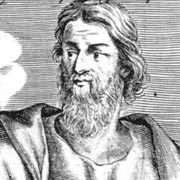


Introduction
“The art of life means enjoying pleasures as they pass. The most tempting pleasures are neither intellectual nor are they always moral.” Surprising as they may sound, these words were said by Aristippus of Cyrene - a lesser known pupil of Socrates, in stark contrast with his master’s teachings. Though Aristippus never attained much fame, he is credited for laying foundations of the ‘Hedonic’ school of thought, which believes pleasure- regardless of how it is derived- is the supreme purpose of human existence. By this corollary, Hedonism translates as blatant materialism.
Aristippus remains buried in the annals of history of psychology for uttering these words that are paradoxical to the teachings of Socrates who held knowledge and wisdom supreme and encompassing, with scant regard for worldly pleasures. Yet, Aristippus defined through these thoughts, an unspoken fact. That pursuit of happiness is the ultimate goal of all humans, who will scale any heights to attain pleasures. No sane human being wants pain or hurt. Happiness is an intrinsic human pursuit that culminates into extrinsic endeavours to obtain pleasures. A deeper look at Aristippus’ life will give insight into lengths humans can go, in search of happiness and often, greed.

Aristippus was born in 435BC the city-state of Cyrene, Libya. During his era, Cyrene was a part of the Athenian empire. Hence he derives the title, Aristippus of Cyrene. Precise records about Aristippus’ antecedents are non-existent. Some claim, he was born to an athlete from Cyrene named Aritades, who was participating in the Olympic Games in Athens. The father and son arrived in Athens and the young Aristippus was overwhelmed by the grandeur of the Hellenic capital.
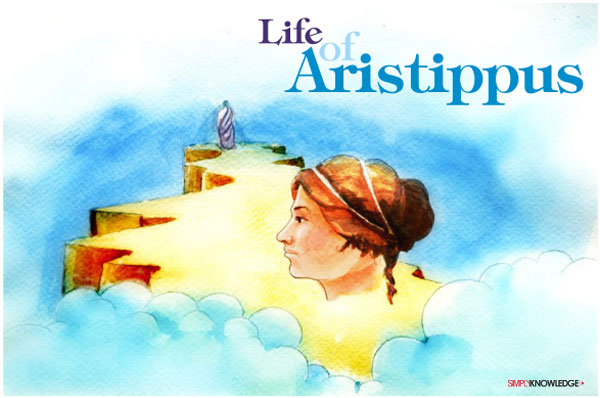
Ancient Hellenic chronicler and historian Diogenes Laertius, who penned biographies of several reputed Greek psychologists and thinkers, mentions Aristippus in his extant text ‘The Lives and Thoughts of Eminent Philosophers’. However, details about Aristippus’ life are sketchy since the book was compiled some 500 years after Socrates’ execution and large chunks of information were obtained from other texts. He had a daughter named Arete, who was his ardent follower and successor. Details about Aristippus’ wife and other children remain mired in obscurity to date.
It is generally accepted from Plato and Xenophon’s writings that Aristippus was indeed a student of Socrates, albeit a “wayward” one as described in Platonic texts. Historians also agree he arrived in Athens during the Olympic Games and had ambitions of living the life of nobles, though he neither possessed the required royal lineage or qualities. The sheer grandeur of Athens prodded him to remain in the capital of the Hellenic empire.

Awed by Athens and the opulent lifestyles of Athenians, Aristippus tried ways and means of eking existence in the city. He found that thinkers during that era were revered and enjoyed a good life.
Socrates was preaching his thoughts at one of his famous open-for-all gatherings and Aristippus, learning about his fame, became an instant follower, hoping to cash in on the master’s popularity.
He is claimed to have viewed Socrates as a “meal ticket” in Athens rather than as a teacher. As a result, chroniclers of the era deride Aristippus for his wayward ways and some even refuse to portray him as a disciple of Socrates or classify him as a thinker.
The reason why prominent chroniclers shunned Aristippus is evident from his lifestyle. While other students of Socrates, such as Plato and Xenophon, never pursued material pleasures, Aristippus spared no effort to procure them, even at the cost of compromising Socrates’ unique teachings that laid emphasis on wisdom and knowledge as the truest pursuit of life rather than pecuniary gains.
While Plato and Xenophon belonged to aristocratic families and had foregone comfortable lifestyles to follow the master, Aristippus sole interest in Socrates was the master’s high connections: Royals and nobles who liked Socrates invited him and his students to grand banquets and showered them with gifts. Eccentric as he was, Socrates barely partook of any feast and never accepted lavish presents. Students like Plato and Xenophon also followed in their master’s footsteps. Aristippus, in stark contrast, would not only enrich himself, he would also seek further favours from Socrates’ admirers, much to the consternation of fellow students.

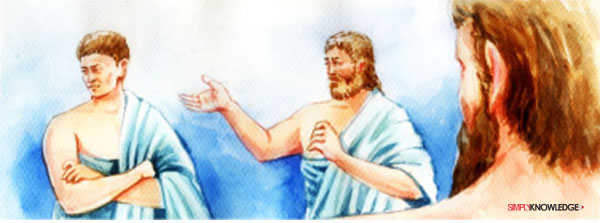
Xenophon was Aristippus’ archenemy. In his writings, Xenophon vituperates Aristippus in several ways, saying he never rejected gratification from any benefactor and would demand it instantly. Aristippus justified his actions saying: “I am merely deriving pleasure from whatever is offered, without asking or toiling for it”.
Plato, in his writing ‘Memorabilia’ notes that once he found Xenophon admonishing Aristippus for having availed some favours unscrupulously. While Xenophon was livid, Aristippus was calm and justified his unabashed materialism.
Plato snubbed Aristippus by scornfully dismissing his thoughts and teachings, though discreetly. He looked upon Aristippus as a straggler who had no real interest in knowledge, humanity and ethereal thinking.
However, Socrates, thanks to his eccentricity, liked Aristippus believing he was a genuine thinker and viewed the clash between Aristippus and other students such as Plato and Xenophon as “difference in ideologies”.
Aristippus’ greed with sheer disregard for Socratic teachings pitted him further against Plato and Xenophon. Socrates believed in teaching his students without any charges. Aristippus, paradoxically, tried to encourage Plato and Xenophon to accept fees from new students in cash or kind- widening the rift to a chasm. “It is better to be a beggar than ignorant. For the beggar only wants money, but a ignorant person wants only humanity,” Aristippus once told Plato and Xenophon, drawing their further ire, since he was openly castigating Socratic principles. With these words, Aristippus had also insulted Socrates who would oft repeat: “I am the wisest man alive, for I know one thing. And that is, I know nothing.”
Aristippus is the only known student of Socrates who charged fees for his teachings and lectures. While the master turned a blind eye to Aristippus’ antics, Plato and Xenophon, in reverence to Socrates, grudgingly tolerated the renegade amongst their clique.
Plato and Xenophon’s despite against Aristippus is well documented further in Plato’s ‘Phaedo’: Plato states, Aristippus deliberately stayed away from Socrates during his last days, including the master’s trial, incarceration and execution, fearing he too might get targeted by some royals. Instead, Aristoppus was unabashedly enjoying the hospitality of a nobleman.

Aristippus fled Athens to avoid any conflict of ideologies with Athenian rulers and formed his group of students upon reaching his native Cyrene, when the pro-Spartans overran Athens at the end of the Peloponnesian War in 404BC. He believed, Socrates would invite the fury of the new oligarchic rulers of Athens, the Thirty Tyrants. He began teaching a new form of psychology. In simple words, Aristippus said, while Socrates was right in stating that he was wise because he knew he had no knowledge, Protagoras had said all knowledge is relative and we can learn only through experience.
Aristippus said, obtaining pleasure is the only way to gain knowledge since it is the ultimate aim of humans. Hence, indulging in every pleasure, however perverse, was a method of education. Pain, at all costs had to be avoided and pleasure had to be derived at all costs. Aristippus said, humans should possess whatever they can as long as they derive pleasure and such possessions do not cause pain. “I possess but I am not possessed,” became the byword of his preaching.

Aristippus, in his brazen conquest for pleasures, flagrantly flouted every acceptable norm of Athenian conduct and propriety that prevailed in his era. Biographer Diogenes Laertius discounts some sensational stories attributed to Aristippus stating, some of these could be false or fuelled by those holding a grouse against the Cyrene-ian. He was termed an iconoclast for his sheer disregard for societal norms.
Famous among these are Aristoppus’ proximity to King Dionysius-II of Syracuse. Aristippus, in his audacious quest for pleasures, would curry favours from King Dionysius-II, and thus earned the ignominious title: ‘The King’s Dog’. According to some stories, Aristippus would go to any lengths to appease King Dionyisus-II. The king, irate at Aristippus’ frequent demands for luxuries, once asked him to don female robes and dance before other courtiers like a woman- to which he promptly complied. He would snivel and grovel by kissing the ruler’s feet before other courtiers, pleading for opulent luxuries. He once exposed his infant son to danger. When chastised, Aristippus replied: “Phlegm and vermin are also of our own begetting, but we still cast them as far away from us as possible because they are useless,” indicating sheer disregard for an innocent life.
On another occasion, the king offered him three female courtiers and asked him to select one, to satisfy Aristippus’ demands for carnal pleasures. Aristippus took away all three citing examples of royals who had unlimited access to such female companions. When berated for his relationship with a courtesan Laias, he quipped: “Does it matter if you stay in a private house or a shared room or you sail in a ship with others or alone?,” to imply, he did not bother whether the woman was a courtesan whose job was to satisfy other men or, she was a wife. This occurred during a period when he was supposedly married, though details about his spouse are unavailable and undocumented.
“What is best is not abstaining from pleasures, but instead controlling them without being controlled,” he said, which ranked among his major teachings. Implying, any pursuit of pleasure is acceptable as long as one does not get obsessed.
Aristippus also had formed the Cyrenaic School of Thought in 400BC, to preach his new doctrine, which saw him attain some fame. He was also ridiculed for his teachings, though some sections of nobles and commoners accepted it willingly, believing only wealth and power could beget real happiness.
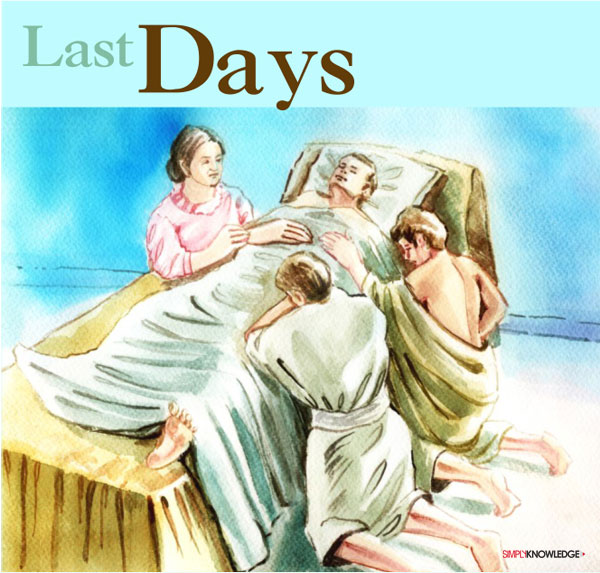
Aristippus spent his last days in Cyrene as a cohort of its rulers. He extolled the virtues of opulent living as the sole means of happiness and knowledge saying, only an experience of luxurious life, sans any pains, leads to true knowledge. Despite the controversy, he found some followers, especially nobles, who preferred an ostentatious life over virtue. Aristippus died in 356BC, of old age. It is believed, his daughter and pupil Arete was by his side.
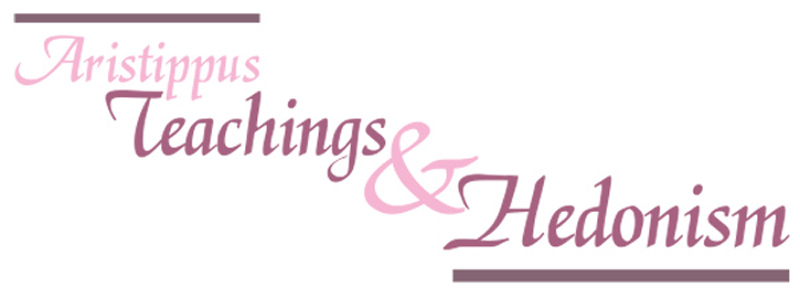
One would expect Aristippus’ teachings and the school to have faded into history after his death. Time proved otherwise. His principle that only opulent life, free from pain is worth living gained ground rapidly after his demise, under the leadership of Arete- a fierce proponent of her father’s thoughts.
Aristippus psychology about ultimate, unparalleled pleasure void of pain combined with Arete’s efforts and increasing number of followers soon led to formation of the Hedonic school of thought. The concept of “pleasure” however became an issue of great debate. Hedonists did not know whether their masters Aristippus and Arete meant only sensual and carnal pleasures or the definition covered other realms of living.
Early Cyrenaics faced a major problem: Should they follow Aristippus by denigrating themselves and defiling all accepted forms of ethical living, as their master had done, or, should they adapt a new system that was based on his teachings but differed in action. This question was finally resolved by Aristippus the Junior, grandson of the master and son of Arete, who evolved a definite code of conduct that did away with immorality. Aristippus the Junior propounded that the ‘end’ result- happiness- depends upon the means- moral or immoral. He dispensed with expediency as means of gaining pleasure by teaching that immorality for pleasure is “pain”.
Implications of Aristippus' Teachings and Hedonism
Implications of Aristippus' Teachings and Hedonism
The psychology that happiness leads to “perfect humans” since life is free from pain, had major implications on the world- notably, colonization of the world by major powers and the rise of capitalism. Colonization called for enriching one’s nation and self exponentially, regardless of the means. Capitalization is a widely accepted practice to date and flourishes by often turning a blind eye to various issues such as human rights and environmental damage. Corruption is also considered a form of Hedonism since the person receiving a bribe accepts the gratification with little or no regard for existing laws, rules and regulations. Such inducements are offered in cash or kind and sometimes, in the form of carnal favours.
Biography of Aristippus | 3 Comments >>
3 --Comments
Your web site is very much worthy of a bookmark. Thank you for the good post!
Glad to be one of many visitants on this remarkable internet site
Leave Comment.
Your email address will not be published. Required fields are marked.
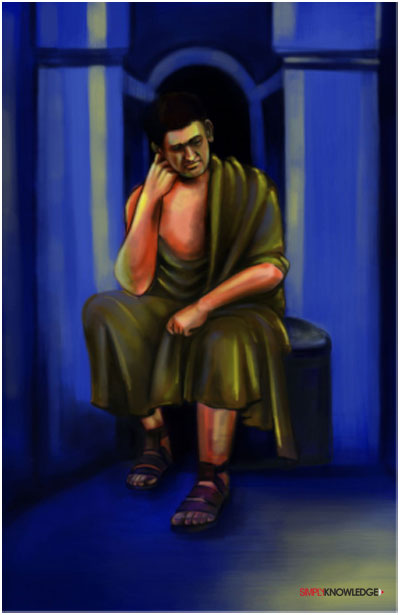

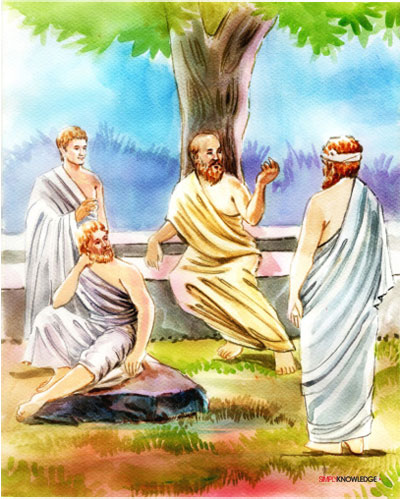


Thank you so much